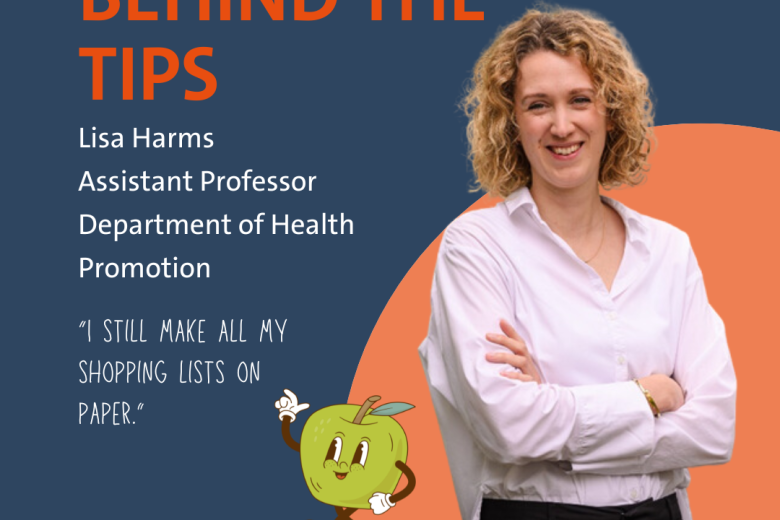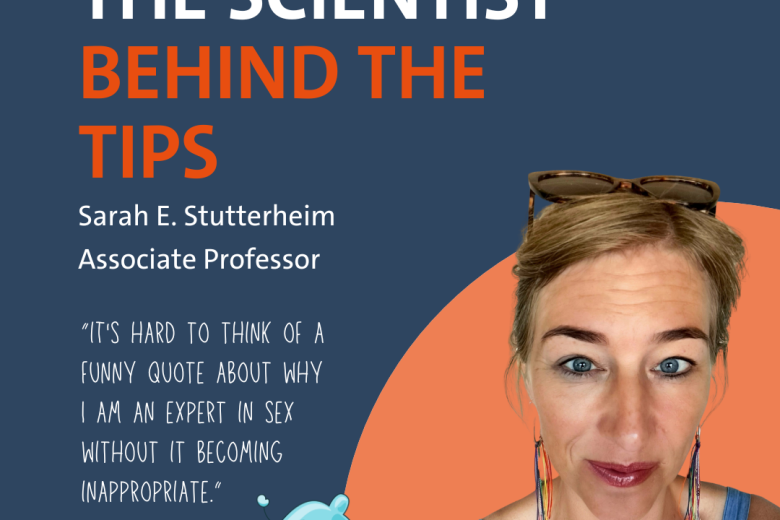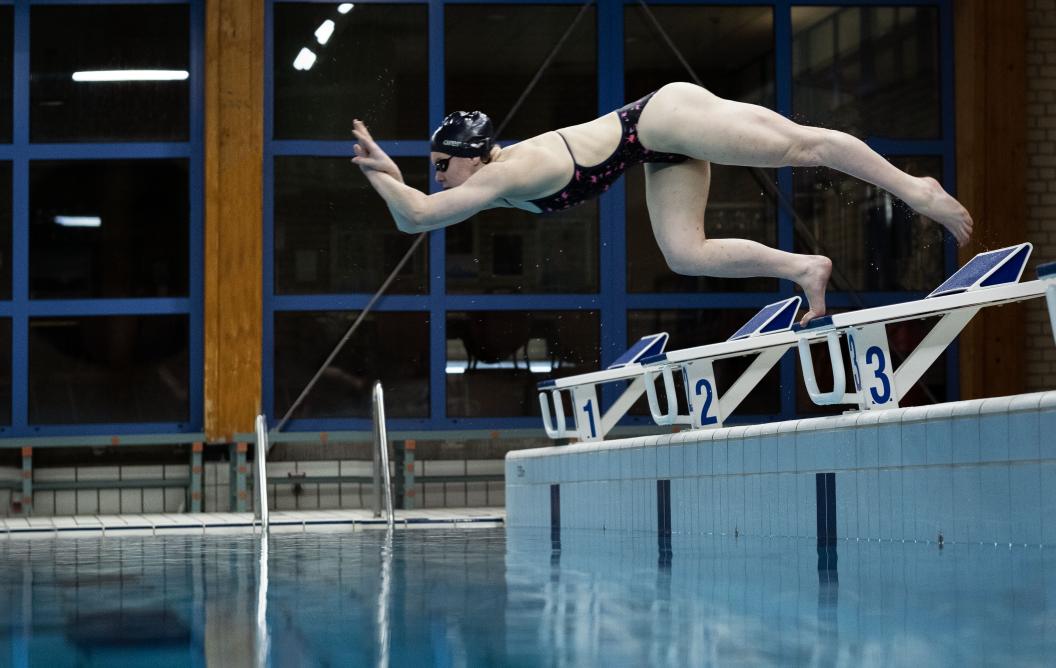Top athlete #2: swimmer Judith Houtvast
In our series on students who are top sport athletes, Judith Houtvast is next to speak. Judith (19) already swam several National Championships and is also studying in the second year of the bachelor's programme in Biomedical Sciences. How does she do it and where does she put her priorities? She tells us below.
Judith has been swimming competitions for 13 years, although at the age of four it did not look like she would reach a top level in this sport. "As a toddler, I went to swimming lessons like all other children. Soon, the swimming teacher said I would never learn to swim and should just go back to the beginners' group. My parents arranged for me to be placed with another swimming teacher and after that, things went fine. I passed all the diplomas in succession, even swimming skills 1, 2 and 3. When I was then asked which sport I would choose, I answered football or swimming. That led to an invitation to join a training session. I didn't like it because everyone was faster than I was, but for the sake of decency, I said I enjoyed it. In the end, I really came to love this sport."
Moving to Eindhoven on her own
She gives a lot to her sport. When she was 16, she got the opportunity to train full-time at the Royal Dutch Swimming Association (KNZB), but to do so she had to move to Eindhoven. Judith: "I live near Sittard and also went to secondary school there. The internship meant I had to leave school and finish my education in Eindhoven. I lived there for two years. Fortunately, it was a very safe environment. We were on a guarded campus, there was supervision and a cook who prepared meals for us. Every day, in addition to school and homework, we followed tough training. That really took me a long way in my sport."
Training
Biomedical Sciences is not an easy study programme. How does Judith combine that with all her training and competitions? "Unfortunately, I can't go to all training sessions in addition to my studies. My priority is the study programme, so I look at how often I can train from week to week. I let it depend on the number of teaching hours and the assignments I have to do. Then I discuss with my swimming trainers at which times it is important to be there. So I have to make choices. One week I manage to train eight times, the next only five. Study assignments I try to do as much as possible during the day, but if I can't make it, it has to be in the evening after training and eating."
Endurance
Should Judith adjust her sporting ambitions now that she is putting her study programme first? "Yes, I definitely have to. For example, in the past period, there were training sessions where I did not make the training incentives you need to improve yourself in terms of endurance, speed, etc. My endurance at the moment is not what I would like it to be. So, when I would stand at a competition next to someone who trains 23 hours or even more a week, it does make a difference. I have competed in the National Championships for several years and would eventually like to swim the European Short Course Championships as well. But I have to be realistic now that my studies come first. The technique will remain, but I really need endurance to make it. I do think I can pick it up again later when I have more time."
European Championships or exams?
After her bachelor’s, Judith wants to do a master's programme. She hesitates between immunology and neurology. "Look, the chances of me making it to the Olympics are very small and there is not much to earn with swimming. So I really have to rely on my education later on." Suppose she had to choose between exams and competing in the European Championships: "If I ever reach that level, I would choose the European Championships, but I would also explore what is possible in terms of exams. I got into the UM Top Sports programme last year, but haven't had to use it yet. I can just go to all the teaching groups and participate in the exams. But I know the possibility exists to switch teaching groups and join the resits if you can't be at the exam because of a competition."
Rescue swimming
Besides 'regular' swimming, Judith now trains for competitions with the rescue team. "I did additional training and got my licence for rescue swimming. I am now also allowed to join the Dutch team for rescue swimming and competitions are coming up soon. In the Netherlands it is not so well known, competitions in rescue swimming, but in other countries it is, like in Australia." Does Judith have a tip for other top sports students? "Planning is crucial, because you want to do well in both your study programme and your sport. But it is also important to stop and enjoy yourself every now and then."
By: Margot Krijnen
Photography: Joris Hilterman
Also read
-
Evidence-based health tips for students: supermarket psychology
In the upcoming months, we’ll share tips on Instagram for our students on how to live a healthier life. Not just a random collection, but tips based on actual research happening at our faculty. The brains behind this idea are L ieve Vonken and Gido Metz, PhD candidates at CAPHRI, the Care and Public...
-
Evidence-based health tips for students: the science of love and sex
In the upcoming months, we’ll share tips on Instagram for our students on how to live a healthier life. Not just a random collection, but tips based on actual research happening at our faculty. The brains behind this idea are L ieve Vonken and Gido Metz, PhD candidates at CAPHRI, the Care and Public...
-
Evidence-based health tips for students: the science of mindfulness
In the upcoming months, we’ll share tips on Instagram for our students on how to live a healthier life. Not just a random collection, but tips based on actual research happening at our faculty. The brains behind this idea are L ieve Vonken and Gido Metz, PhD candidates at CAPHRI, the Care and Public...
